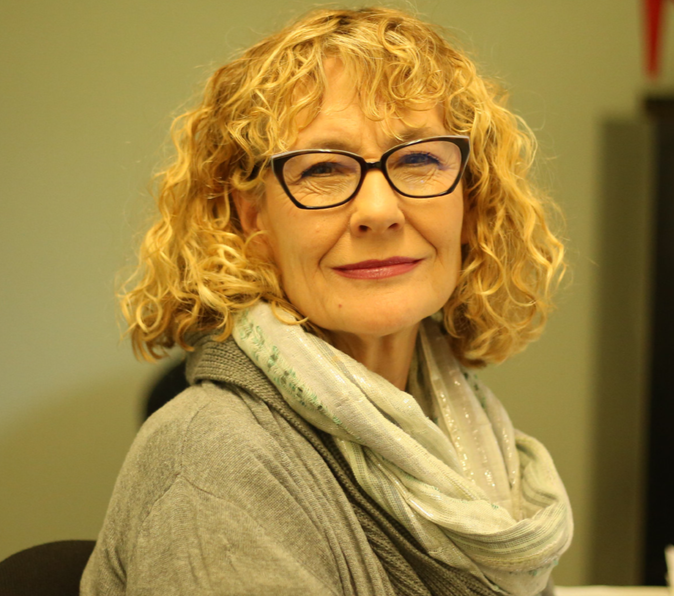By Jacqueline Escobar
Staff Writer
Dr. Wendy Ryden, a professor in the English department, teaches writing courses such as Creative Non-fiction and Writing and Healing. Ryden is also the coordinator of the WAC (writing across the curriculum) program, and she loves working with literature as well. Ryden teaches different literature courses, including Introduction to Literature and World Literature. This semester, she is teaching Writing and Healing and a graduate class, Mythology.

With a passion for Kate Chopin, Willa Cather, and Sara Orne Jewett, Ryden has done work on Gothic literature and its importance in the American canon.
She co-edited a volume that came out last year,“Haunting-Realities: Naturalist Gothic and American Realism,” based on the idea that we don’t intuitively associate Gothic literature with Realism and naturalism; literature that focused on everyday reality rather than the fantastic or romantic.
“My own essay in the book is about a light-skinned African American author, Charles Chesnutt, who wrote a lot about how skin color arbitrarily and with very negative consequences organized American social life,” Ryden added.
Ryden is working on a new book with Monika Elbert from Montclair University, who co-edited “Haunting Realities” with her. This new book also focuses on the Gothic in literature “but with regard to regionalist literature and how authors use the Gothic to resist and become complicit in the narrative of American exceptionalism that was shaping the national identity,” she said.
Ryden has done interdisciplinary work with Professor Shaireen Rasheed of the department of Curriculum and Instruction, to teach students about the idea of resistance.
“Dr. Rasheed and I decided to pair our courses, EDI 14, Social, Philosophical, and Historical Foundations of Education and ENG7, World Literature, Antiquity through Renaissance, in a learning community organized around the ideas of transgression and resistance; so many stories in early literature involve characters breaking prohibitions and defying authority,” Ryden said.
“We looked at Antigone in Sophocle’s drama, who is often thought of as the first civil disobedient, to talk about people breaking laws or rules today from principled stances. In some ways, it was surprising to see student reactions where they seemed to consider Antigone more of a libertarian than a civil disobedient,” she said about the interdisciplinary course.
“The experience affected my own views on the subject. In today’s world, I am finding myself hoping the rule of law will prevail to protect us against deregulation and corruption. In the course, we began to ask the question: When is it a good thing to defy authority and when isn’t it?”
Ryden’s interests in Gothic literature developed in a roundabout way. In the course of the work she does with writing and rhetoric, she became interested in the way we use language to construct race, especially whiteness and its created privilege. She also reveals the work she does with her students. “This interest led me to look at Charles Chessnutt, mentioned earlier, whose fiction deals with very much with that subject. From there, I started looking at the Gothic dimensions of his writing,” she said. “He used the Gothic to show the horrors of American racism in the late nineteenth century.”




Be First to Comment